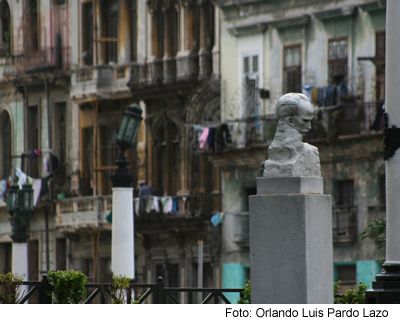
Attentive eyes, eardrums tuned to the elusive sound of the diversion of resources, and brown, almost earth-colored, uniforms. They are the "carmelitas," a veritable army of inspectors who keep watch so that theft will not take the little we have left. They function as a protective body, not subordinate to the administration of the workplace where they are assigned; they answer, like soldiers, to a higher structure of command and control. In exchange, they earn a higher salary, several pounds of chicken every month, and an appetizing snack which they resell on the black market. They are the new army of auditors, in a country where the employees don't measure themselves by what they earn, but by what they are allowed to pilfer to sell on the black market.
These controllers stay just a short time in each industry, to avoid their developing relationships with the employees and falling into the chain of corruption. In the cigar factories they must search the rollers so that they don't sneak out leaves or cigars under their clothes; in the Suchel Plant in the municipality of Cerro they look through workers' pockets for shampoo or perfume extracts; in the middle of the road they check every passenger on the bus to make sure they have a legal ticket; and at the Rio Zaza company they had to prevent sacks of milk or tomato puree from walking out. Trained to check seals, close locks, and make a record of the products in a warehouse, they still haven't managed to stop the constant embezzlement. It seems that the task of creating pockets of efficiency and control is impossible on an Island where looting the State is a means of survival.
The point is that the government knows that people steal from every workplace, but they also understand that closing all the conduits of this ransacking would create a climate of great social tension. Until now, the blind eye turned toward this pilfering was a way to maintain calm among the offenders so they would not demonstrate their discontent in other, more public, ways. The majority of citizens are aware of what they applaud or keep quiet about, to avoid any investigation into their own lives and bringing to light the illegal sustenance that feeds their family. For years this permissiveness toward embezzlement has been an efficient medium of exchange for passivity, hence the difficulty of eradicating it without dynamiting the system itself. The "carmelitas" will not be able to prevent the continued siphoning off of resources, because corruption is the sap that feeds, fundamentally, those who today send the army of auditors into the streets.
PS: I recommend reading the article by Esteban Morales: "Corruption: The True Counter-Revolution?"
Yoani's blog, Generation Y, can be read here in English translation.
